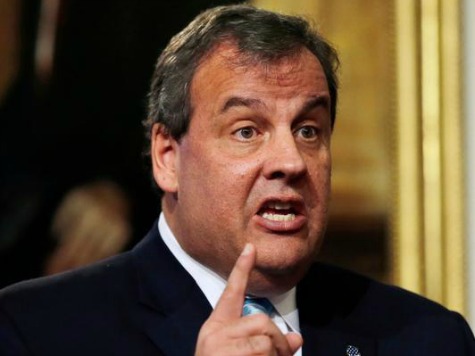The New York Times just left a shiny lump of coal in Chris Christie’s stocking. In light of accusations that the Governor shut down a bridge to harm a mayor who didn’t endorse him, the paper makes the circumstantial case today that Christie has been this petty for years, citing enemies who suspect his hand in their woes.
Author Kate Zernike has compiled the troubles of a number of people who crossed Governor Christie’s path, arguing that in speaking with many New Jersey politicians–of either party–stories of Christie’s ruthlessness with enemies abound. She begins with a laundry list of infractions of suspicious incidents: “a former governor who was stripped of police security at public events; a Rutgers professor who lost state financing for cherished programs; a state senator whose candidate for a judgeship suddenly stalled; another senator who was disinvited from an event with the governor in his own district.” Allies and enemies alike, she reports, have received personal notes or have reason to believe Christie personally objected to public statements, political moves, or any number of activities not to the Governor’s liking.
The bridge incident allegedly is merely the tip of the iceberg. In that particular incident, Governor Christie stands accused of causing havoc by closing lanes of the interstate George Washington Bridge to enact vengeance upon Fort Lee Mayor Mark Sokolich for not supporting the Governor’s reelection campaign. What it displays, Zernike argues, is a pattern of behavior that cements Christie’s “reputation as a bully,” one so strong that she alleges New Jersey’s Democrats expressed little surprise at the bridge incident.
The highest-profile victim of Christie’s pettiness is former Interim Governor Richard Codey, who testifies that his cousin was fired from his government job shortly after Governor Christie publicly called Codey “difficult.” State Assemblyman Sean Kean once said that the Christie administration did not respond rapidly enough to a snowstorm that devastated New Jersey years ago, and he draws a link between his comment and the loss of his State Senate seat in redistricting. Most of the stories in the piece are this circumstantial, if not more so.
New Jerseyans have endured all sorts of outrageous behavior from their elected officials, and their governors are not exceptions. After the one-two punch of the Jim McGreevey and Jon Corzine administrations, it is hard to see New Jersey’s voters turning on Christie because he was mean to some elected officials he didn’t like, especially when his entire brand is based on berating teachers and otherwise “tellin’ it like it is.” And it would be naive to assume that New Jersey constituents are the target audience for the Times piece.
Governor Christie has spent years elaborately crafting his image as the face of the national Republican Party, and the Times article comes at a time when, more than ever, he appears to be succeeding. In 2016 national polls, Christie went from a ten-digit deficit to potential contender Hillary Clinton to a one-point lead–and that’s without Christie’s having done anything to turn the nation’s attention to Clinton’s shoddy foreign policy record. Christie’s star is rising so rapidly the state’s newspapers are chiding him for forgetting who writes his checks. 2016 is quite a distance away, but it seems that someone somewhere has decided to stop the Christie train sooner, rather than later.
The New York Times‘ hit piece, which is clearly cemented in the George Washington Bridge situation, the extensive coverage on MSNBC, and attacks on the Governor from a Clinton-affiliated opposition research group all suggest that the left feel they have finally found something that will stick onto Christie in the long run. It’s a story that, if successfully sold nationally, should make voters reject Christie, depicting him as a sleazy, petty New Jersey political archetype–a figure who works well for those urban people over there accustomed to corruption, but doesn’t belong in the White House. This is a risky line of attack. It has failed before. In fact, it failed in the past two presidential elections.
Does anyone remember Tony Rezko?
Tony Rezko was a sleazy, petty Chicago archetype–a figure who works well for those urban people over there accustomed to corruption, but has no place anywhere near the White House. He was also involved in some shady real estate dealings with President Barack Obama. Tony Rezko was all the rage in 2008, when Democratic primary candidates and Republicans alike questioned how Senator Obama could portray himself as such a clean-cut figure coming from such a tainted political pool as Chicago. Even Salon wrote a piece arguing that being associated with Tony Rezko was “bad judgment,” something the then-Senator should have to explain. Rezko, long forgotten, is currently serving a decade-long sentence in jail for his various dealings. Obama, all but forgotten, remains in the White House.
The Rezko incident serves to remind those on the left who are eager to use the tactics they so cleverly deflected six years ago that localized corrupt behavior is a tough sell in a presidential election. Sex scandals, unseemly shouting, general boringness–those are surefire hits. But to attack Christie on his attitude, rather than his record (fertile ground for attack on its own), is a dangerous game.

COMMENTS
Please let us know if you're having issues with commenting.